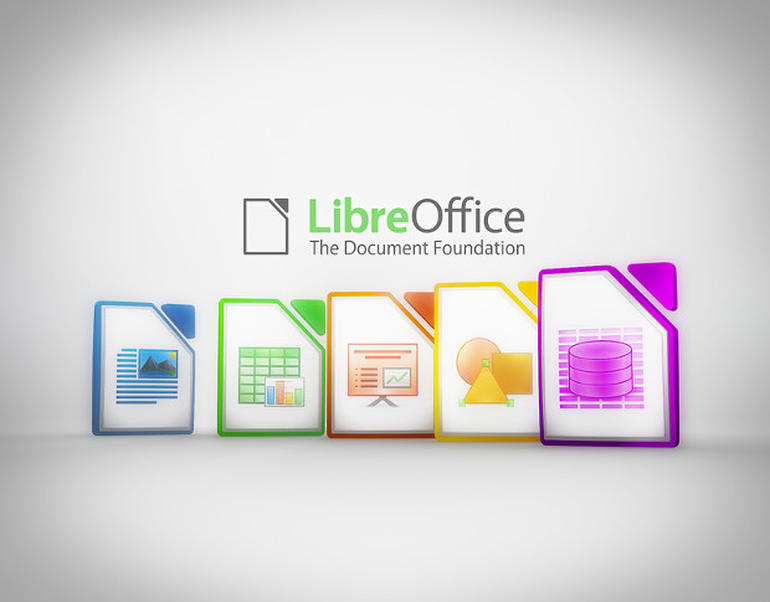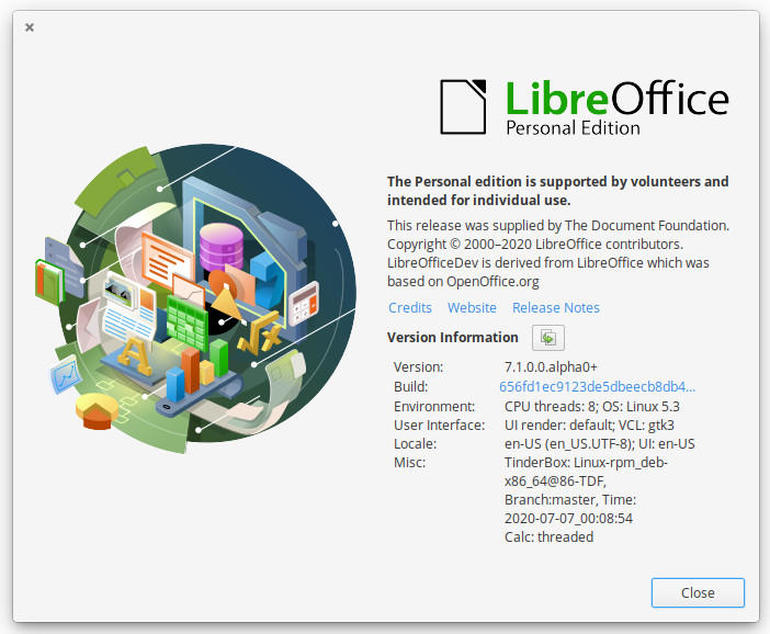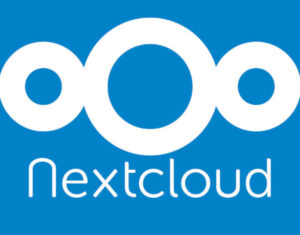Commentary: There are rumblings in the open source community that LibreOffice will no longer be free for enterprise users. Jack Wallen shares his take on this and other LibreOffice 7-related rumors.

Image: LibreOffice
The RC1 candidate of LibreOffice was recently released. Soon after, something odd was discovered in the About LibreOffice window. It seems the developers had tagged that release candidate as a Personal Edition.
What did this mean?
Of course speculation is running amok with rumors that LibreOffice is no longer going to be free. After all, the open source office suite has always been free and never before hinted at ever not being free. Yet, there was that oh-so-obvious change in the About dialog indicating something was amiss. After all, it’s a pretty easy conclusion to draw when said dialog clearly states (Figure A): “The Personal Edition is supported by volunteers and is intended for individual use.”
Figure A
” data-credit rel=”noopener noreferrer nofollow”>

The LibreOffice 7 About dialog
It might be a single line, but anyone can still read between the obvious subtext.
This particular version of LibreOffice is free to use by individuals only–we know where that leads.
Soon after that discovery, The Document Foundation released this statement:
None of the changes being evaluated will affect the license, the availability, the permitted uses, and/or the functionality. LibreOffice will always be free software and nothing is changing for end users, developers, and Community members.
That’s a bit vague, especially given that The Document Foundation is planning a big announcement on July 15th, 2020. What will this announcement be? All things point to a change in the landscape, starting with LO 7.
SEE: 10 free alternatives to Microsoft Word and Excel (TechRepublic download)
I came across this set of slides prepared by The Document Foundation’s media relations guru, Italo Vignoli. On the very first slide, there’s a massive clue as to what this announcement might regard:
Since 2010, the global open source ecosystem has evolved and there have been lengthy discussions about the relationships with business using OSS without contributing back to open source projects.
Later on, in the same set of slides, this bullet point popped out:
Finding the right balance between the free product and the enterprise supported product.
There’s the final clue: Enterprise supported product.
Unless I’m missing something, it looks as though The Document Foundation is planning on shifting its model to a free personal edition and a paid enterprise edition.
So what if that comes to be? What if LibreOffice is no longer free for enterprise users?
Although the knee-jerk reaction by the community at large might be a bit on the shocked and rebellious side, I think we’ll see a positive outcome from enterprise users.
Let me explain.
Why people choose LibreOffice
There are three primary reasons why end users opt for LibreOffice over the competition:
- It’s open source.
- It’s free.
- It works flawlessly on Linux.
The reasons why enterprise users opt for LibreOffice are a bit different:
-
Interoperability;
-
future proof; and
-
standards compliance.
Enterprise decision-makers don’t care if LibreOffice has an associated cost–they’re used to paying for Microsoft Office; they do care about LibreOffice being able to work with Microsoft Office and other documents. Large companies also care that LibreOffice is a future-proof platform; they aren’t going to purchase LibreOffice 7 only to find that the next iteration will render LO 7 unusable. Large companies want to know they can purchase a product and enjoy a high ROI.
Finally, enterprise companies require compliance. Although LibreOffice documents and Microsoft Office documents do enjoy an almost seamless interoperability (“almost” being the operative term), LO is far better at adhering to standards than MS Office.
But, more important than any bullet point I can bring up is this: If LibreOffice starts charging for an enterprise version, it means it is beholden to ensure the product delivers the features, reliability, and ease of use its customers demand.
To that end, The Document Foundation has to be prepared to live up to charging for an enterprise product–that product cannot simply be a rebranded personal edition. If there is an enterprise version of LibreOffice, it will have to improve on the existing app. LibreOffice Enterprise must (at least) have 100% interoperability with Microsoft Office and include support. There can be zero issues collaborating between Microsoft Office and LibreOffice.
That’s a big ask, given that the work will be 100% on the shoulders of LibreOffice.
Another issue The Document Foundation will have to finally conclude is a cloud version. For an Enterprise Edition to be successful, a cloud edition of the software will have to be included.
However, The Document Foundation has made its stance clear on this:
The Document Foundation is not planning to develop and fund a cloud solution similar to existing products from Google and Microsoft, because this would require selection and integration of the other technologies needed for deployment–file sharing, authentication, load balancing, and so on–which for desktop LibreOffice is part of the operating system provided by the user.
That short-sightedness could become a problem in the future, especially as more and more enterprise companies continue to grow dependent on the cloud. What happens when a company finally opts to go all-in on the cloud, and the Enterprise Edition of LibreOffice can’t comply? It could turn to the likes of Nextcloud, with ONLYOFFICE built in. Or, it could spend its dollars on Office 365 or G Suite.
A small step forward
It seems The Document Foundation is taking a small step forward to gain a bit more of that enterprise market share pie. But that step forward might be a bit too small when it cannot offer an online version of its software.
In the end, there’s no reason for consumers and open source advocates to worry, as there will always be a free version of LibreOffice. Hopefully, the improvements The Document Foundation makes to the Enterprise Edition of LibreOffice could eventually trickle down to the Personal Edition.
One can always hope.
Also see
Source of Article



